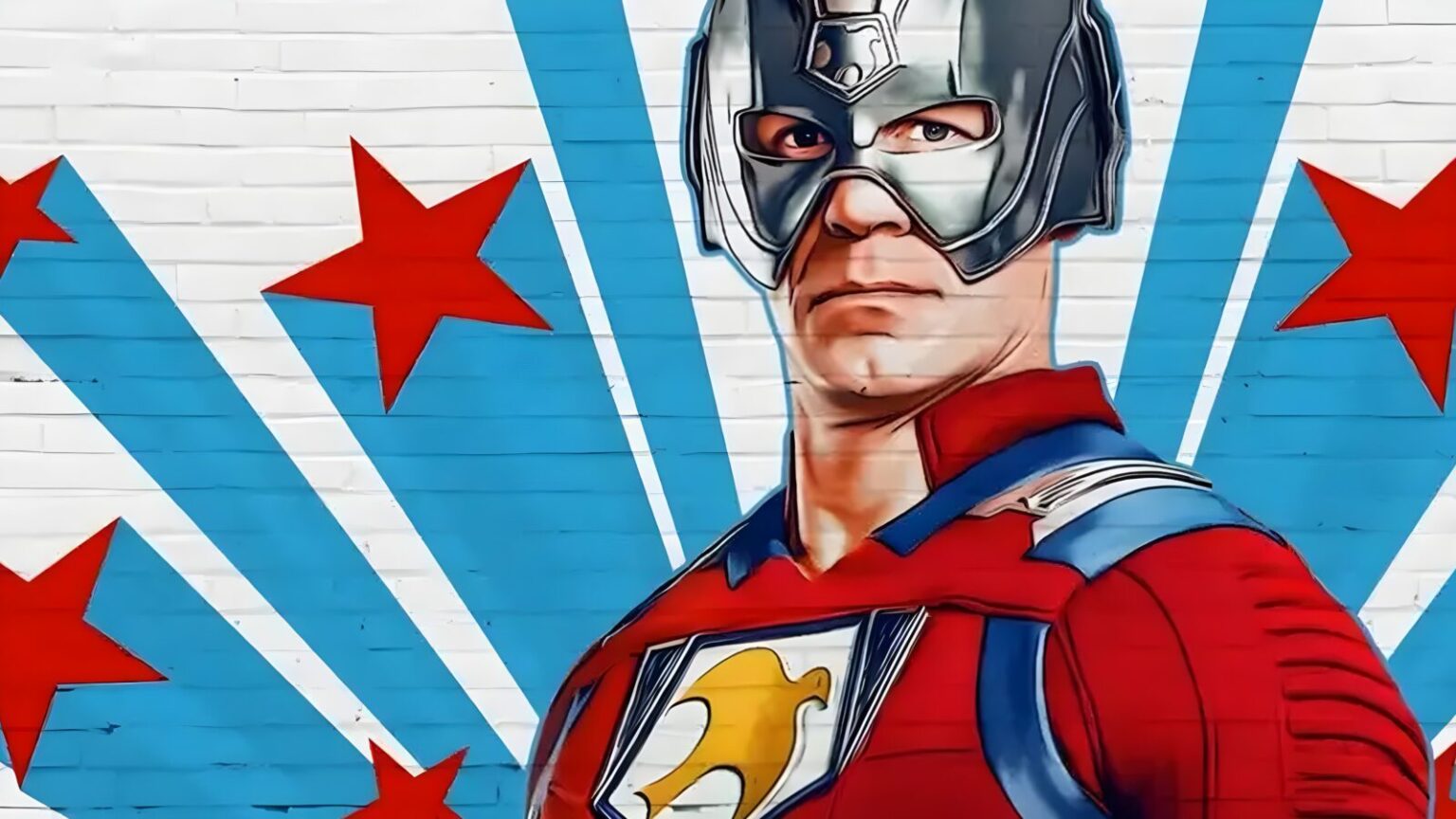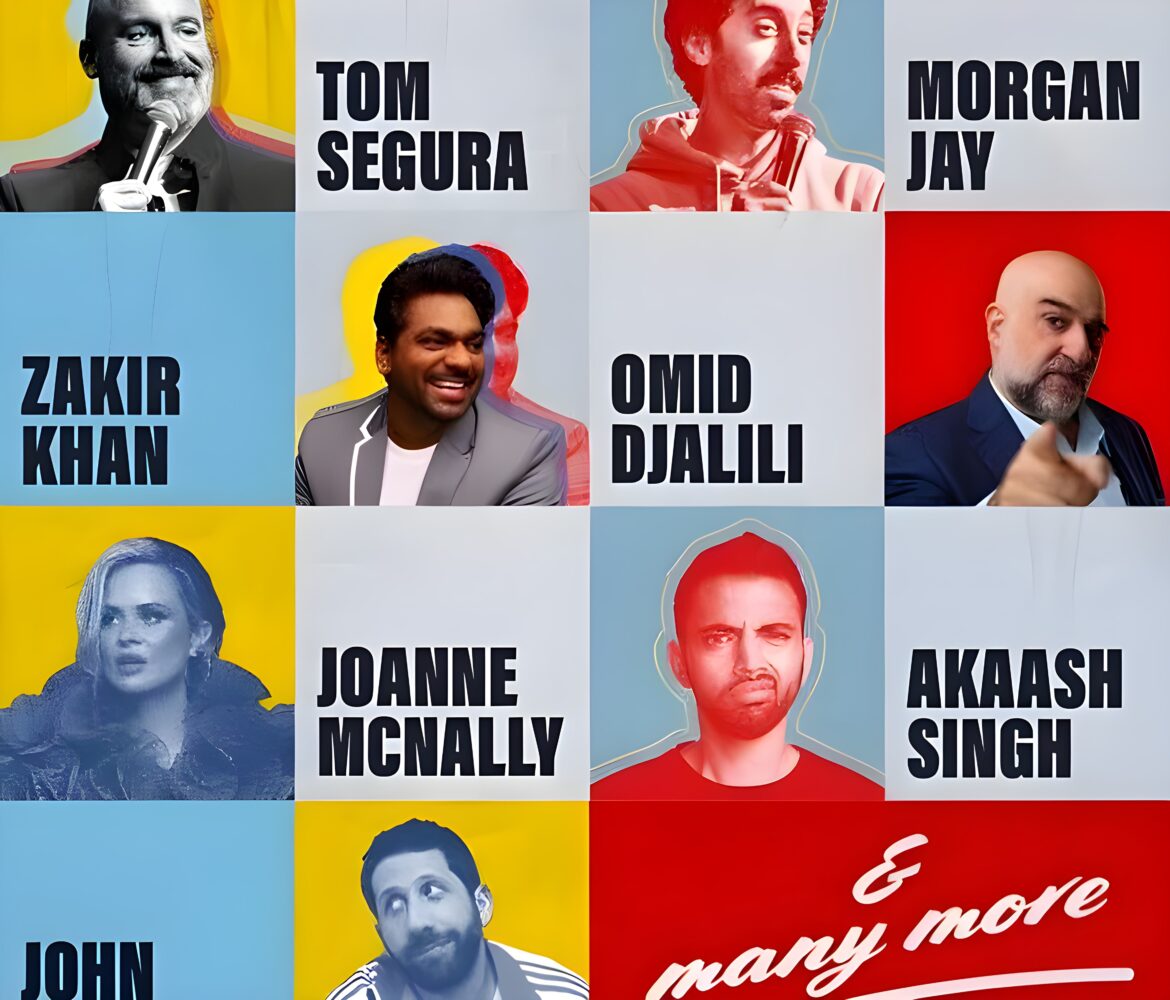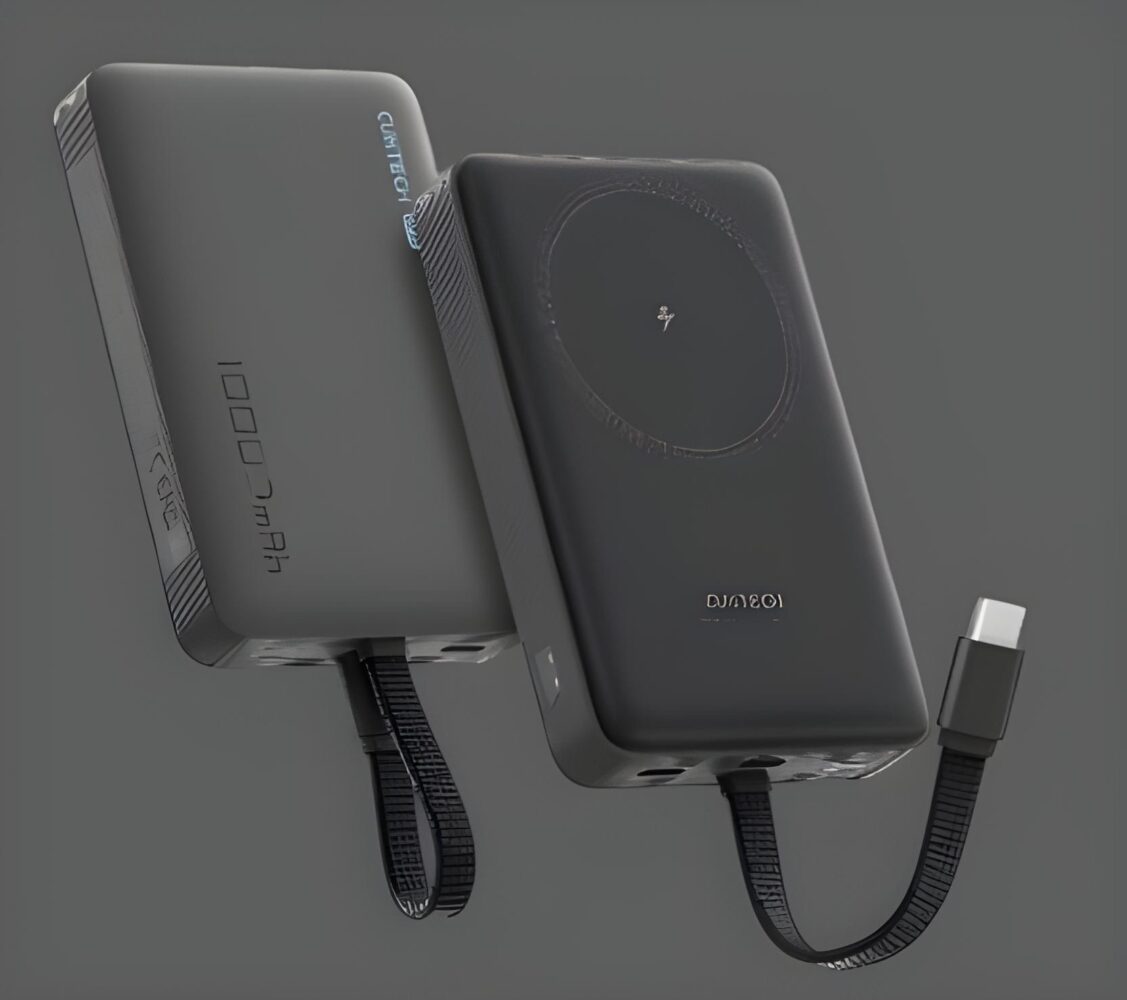TL;DR: ARGUS betrays Chris and launches a takedown at his house, forcing a scrambling, funny, bruising escape. A flashback reveals Auggie stole the interdimensional “Quantum Unfolding Storage Unit” from a blue-sashed alien courier, tying the door to Chris’s childhood. Economos chooses friendship over orders and stalls ARGUS; Adebayo becomes driver and confessor as Chris finally admits why he keeps using the door; St. Wild hunts Eagly with ritual zeal; Harcourt cuts a deal with Rick Flag Sr. that smells like a trap. The door is safe for now; the people are not—and that’s why this episode works.
Peacemaker Season 2
There’s a special kind of betrayal that only happens in superhero TV: the kind where the people who once cut your checks decide it’s more convenient to cut your legs. Peacemaker Season 2 Episode 4—blessed with the very James Gunn title “Need I Say Door”—parks right on that nerve and leans until it hurts. ARGUS turns on Chris Smith with the bureaucratic chill of a broken printer, and the show cashes that turn into one of its tightest, meanest, funniest hours. It’s a midseason shake that says, gently, “Hey, remember how we promised this was a story about accountability? Cool, we’re cashing the tab.”
I walked out of Episode 4 with two equally loud thoughts fighting for airtime. The first: this is the show at its best—messy friendship, weaponized sincerity, bare-knuckle comedy, and a sudden rush of cosmic lore that arrives in a briefcase and bleeds out in a hunting ground. The second: if ARGUS is the line between order and chaos, maybe chaos deserves a lawyer. In a season that’s been toggling between two plots—the interdimensional door that tempts Chris with a better, worse, so-temptingly-better life and the slow turn of ARGUS from handler to hunter—this week finally glues them together. The glue is blood. And a little bird poop. And, surprisingly, devotion.
The Cold Open That Rewires The Season
Peacemaker has always been a show about symbols pretending to be people and people pretending to be symbols. Helmets that promise salvation, flags that excuse violence, patchwork found families that function better than the ones with legal paperwork. Episode 4 opens by adding a new symbol with the force of a confession: the Quantum Unfolding Storage Unit. It’s a mouthful, yes, but it’s also a thesis statement in a handle. We watch a young Chris encounter a stranger in the woods—a bug-eyed, bird-adjacent alien whose entire body language reads “envoy.” The creature wears a blue sash like a cultural passport and clutches a briefcase that’s less weapon than key. Chris pleads. Auggie shoots. The episode quietly places a pin in the wall labeled “This Is Where The Door Began,” and then pulls the thread into the present.
What sings here isn’t just the lore drop—though if you’re keeping a Peacemaker Season 2 Episode 4 recap bingo card, you can stamp the squares for “interdimensional portal origins explained” and “mysterious technology gets an ominous proper noun.” It’s the way the scene reframes everything we’ve seen. The door isn’t just a goofy plot device; it’s a legacy of violence. Chris didn’t stumble into cosmic logistics; his father killed a courier and brought home the key. That’s not science fiction; that’s an heirloom curse.
ARGUS Arrives With A Warrant And No Soul
From there, “Need I Say Door” ricochets into a siege comedy: ARGUS outside the house, Eagly on patrol, Economos stuck in a van with his conscience and several people who do not deserve him. St. Wild (Michael Rooker) shows up as an eagle hunter with deadpan gravitas and a job that is, frankly, a hate crime. Fleury (Tim Meadows) is cranky in a way that suggests he has twelve performance reviews open in other tabs. Bordeaux (Sol Rodríguez) is a boot on the neck with paperwork. Judomaster (Nhut Le) arrives already mad, which is the right way to arrive anywhere in this show.
I love how mundane the initial beats feel. There’s bickering over jurisdiction. There’s petty score-settling about who told who what about Eagly. There’s the quiet thrum of “we’re about to do something ugly and we all know it.” It’s office politics with assault gear. And because this is Peacemaker, the comedy never dilutes the stakes; it sharpens them. Economos gets the text equivalent of a panic attack out to Chris, a scrambled “they’re coming” that lands exactly in time. It’s clumsy and perfect. Small kindnesses keep saving this show.
Fight First, Feel Later: Chris vs. Judomaster
Judomaster’s return is a reminder that grudges are the only renewable energy source in the DCU. There’s no tutorial, no dialogue dump, just two men colliding in the woods like a long-delayed second round that neither trained for. The choreography understands the joke: Chris is strong and weirdly resilient; Judomaster is a scalpel made of fury. The fight also understands the character arc: Chris is lugging an alien device like it’s the world’s worst carry-on, trying to keep one eye on survival and the other on his new religion—the Door. He almost loses. Then gravity, that old sitcom writer, hands him a pratfall victory. He topples. Judomaster naps. It’s slapstick redemption.
What I felt in that tumble isn’t triumph. It’s exhaustion. Chris keeps tripping into wins, and the show keeps asking whether luck can be a moral strategy. Episode 4 answers with a shrug and a glare: it can buy you ten seconds. After that, you need friends.
Economos Chooses A Side (And Finds His Spine)
I could write a whole “Peacemaker Season 2 Episode 4 recap” that’s just a love letter to John Economos. Steve Agee plays him like a man who grew up apologizing to air and learned it never apologized back. When the van doors open and the adults point him at the problem, he does what he always does: the competent thing that gets other people hurt. Except this time, it doesn’t. He stalls. He snarks. He commits a workplace felony with a phlegmy flourish. He spits on Fleury. It’s gross. It’s also the most honest thing he’s done all season.
The spit isn’t just rebellion; it’s a sacrament. Economos has spent two seasons as the quiet conscience of a violent office. In Episode 4, he finally accepts the bill. He risks the badge to buy Chris minutes, and those minutes become a miracle. When ARGUS finally gets the door open, it’s not a portal to a parallel world. It’s a closet. That punchline lands because it’s personal. Economos didn’t hack a system; he chose a friend.
The Getaway Driver, The Confessor, The Heart: Adebayo
Danielle Brooks has been quietly carrying the show’s moral weather report, and Episode 4 lets the clouds move. Adebayo is broke, doubting, and newly aware that “entrepreneur” is just Latin for “please scam me.” She could have sat this one out. Instead, she floors it toward the mess and becomes the hinge on which the episode swings. She pulls Chris out of the trees. She ferries the door to a new address. She helps rearrange reality like it’s furniture.
But the car ride confession is the marrow. Chris finally tells her the thing he’s been hoarding: he crossed a line into a parallel dimension, met versions of his life that he hates and wants, killed himself, and fell in love with another world’s Harcourt. The words come out like he’s testing them for poison. A lesser show would milk this for shock. Peacemaker goes smaller and braver. Adebayo listens. She doubts. She draws the boundary that matters: “Are you doing this to run from us or to keep your promises over there?” Chris answers with the only sentence he’s earned: he can’t let them down. Not the new Emilia. Not Keith. Not himself, the one he’s trying to build.
It reframes the interdimensional plot from “escape hatch” to “honor code.” The door isn’t a fantasy; it’s a responsibility. That’s quieter than multiverse hijinks usually are, which is why it works. People make doors. Promises decide which ones we walk through.
The Hunter, The Ritual, The Bird Who Hugs
If I pitched you “Michael Rooker plays a myth-drunk eagle hunter convinced that killing one bird will balance centuries of harm,” you’d accuse me of writing a parody of a James Gunn subplot. And yet, here we are, and it sings. St. Wild opens as a blunt instrument and morphs into a folkloric problem. Economos knocks him senseless to save Eagly, then lies about the incident with goofy specifics that feel safe in the moment and metastasize into a new religion. St. Wild walks out of the van believing in a “primal eagle,” an avian sovereign whose death will cleanse a nation. He paints his face in blood and performs a ritual that should be ridiculous and, somehow, isn’t.
The show plays this on a knife’s edge. Peacemaker has always had room for magic—just ask the helmets—but it’s also a skeptic about myths that justify violence. By letting St. Wild’s mysticism maybe-kinda-sort-of work, the episode courts backlash from its own tone police. For me, the choice lands because it’s not about power; it’s about obsession. St. Wild’s ritual is a plot engine, sure, but it’s also a mirror for ARGUS: both are systems that aim their beliefs at a single target and call the shot justice. Eagly remains Eagly, cosmically huggable and simple-minded in ways that keep saving lives. If he’s a king, he doesn’t know it. That’s either the best monarchy or the joke of the century.
Harcourt, Flag, And The Old Debt That Won’t Quit
We leave the woods for a colder room and a colder reunion: Rick Flag Sr. pays Harcourt a visit and makes a pitch wrapped in history. Their connection isn’t a shock after last week’s hint that her heart once fit the shape of Rick Jr. What’s new is the scale of the ask. Waller iced her career. Flag has an oven-warm offer letter if she delivers Chris. That’s betrayal twice removed, laundering revenge through HR.
Harcourt says yes the way people do when they’ve run out of neat choices. She sets the meet. She becomes the bait. And in one beat, the show sets up next week’s detonation while quietly underlining one of its oldest points: ARGUS doesn’t just weaponize people; it rents their grief. If Economos is the episode’s conscience and Adebayo its heart, Harcourt is its old bruise. She doesn’t need a speech; she needs a plan. The betrayal in the title isn’t a single knife; it’s a policy.
The Door Keeps Being A Metaphor, Sorry Not Sorry
“Need I Say Door” keeps returning to that object because it’s the one prop that means everything. In an hour about ARGUS tightening the noose, the door is the one thing Chris can still control. He and Adebayo set it up in his grandfather’s cabin, which is a sentence that reads like an American gothic and works like a jailbreak. The staging is tiny—two people, one device, one small explosion—but the thematic effect is huge. If the door lives where Chris decides it lives, then his future is, if not free, at least negotiable.
The alternate world continues to function less like an MCU map and more like a moral fable. This isn’t about Easter eggs; it’s about promises. Chris isn’t crossing dimensions to chase a better version of his own brand; he’s showing up because he said he would. That matters. In a season that keeps asking whether Peacemaker can become Christopher again without dropping the “peace through violence” lie he built a life around, the door becomes a test you can’t cheat. You can’t brute force your way to a better you. You can only keep an appointment.
ARGUS, The Villain That Thinks It’s Your Therapist
ARGUS is a specific kind of monster. It smiles. It writes memos. It tells itself the mirror is clean. Episode 4 finally shows us the full arc of its Season 2 face-turn, and it’s depressingly plausible. If Season 1 was about killing your gods, Season 2 is about getting audited by them. The agency’s case against Chris is pragmatic: the door is dangerous, the man is unstable, the bird is a PR problem. The methods are familiar: show up in numbers, fracture the team, outsource the ugly parts to contractors, and punish dissent with paperwork. It’s not that ARGUS is wrong about the stakes. It’s that they don’t care who pays the bill.
That’s where the betrayal stings. It’s not personal and that’s what makes it personal. When your friend sells you out for a bag of money, you can grieve a person. When a system files you under “acceptable loss,” you’re grieving air. The episode knows this and gives us three answers: Economos says no louder than he ever has; Adebayo says yes to the messy loyalty that keeps families from breaking; Harcourt says fine, but I’ll choose when and how you use me. Chris doesn’t get to win the argument. He gets to keep his people. Sometimes that’s the bigger victory.
The Comedy Is Still Cruel And Kind
The “Peacemaker Season 2 Episode 4 recap” wouldn’t be complete without noting that this hour is funny. Like, sputter-laugh funny, “I really shouldn’t be laughing” funny. The tone remains a dangerously balanced cocktail of gore, heart, and sincerity that keeps swerving just before you name it. Judomaster’s face when gravity betrays him. Economos’ operatic spit. The deadpan accuracy of a closet being, in fact, a closet. Even St. Wild’s blood ritual lands with a smirk not because the show is mocking belief but because it refuses to let zealotry escape without a pratfall.
Underneath every joke is an act of care. The series keeps giving dignity to fools and side characters that other shows use as props. It lets them be wrong at full volume and still worth saving. That’s the Gunn thing I can’t quit: the world is rude and dumb, but if you keep loving people anyway, sometimes the universe turns into a punchline that still saves your life.
Final Verdict
“Need I Say Door” is the season’s tightest hour so far: a bruising, funny, nerve-frayed midseason pivot that welds the interdimensional plot to the ARGUS betrayal without losing the show’s bruised heart. It explains the Quantum Unfolding Storage Unit in a way that deepens the lore and the characters, lets Economos and Adebayo step into the light, turns St. Wild into a chaotic spiritual antagonist, and sets Harcourt on a collision course with her past. Most importantly, it reframes the door not as a sandbox for multiverse shenanigans but as a moral test Chris chooses to take. If you came for a Peacemaker Season 2 Episode 4 recap, stay for the feeling of a show that knows exactly what it’s doing: breaking its hero to see what kind of man crawls out.







